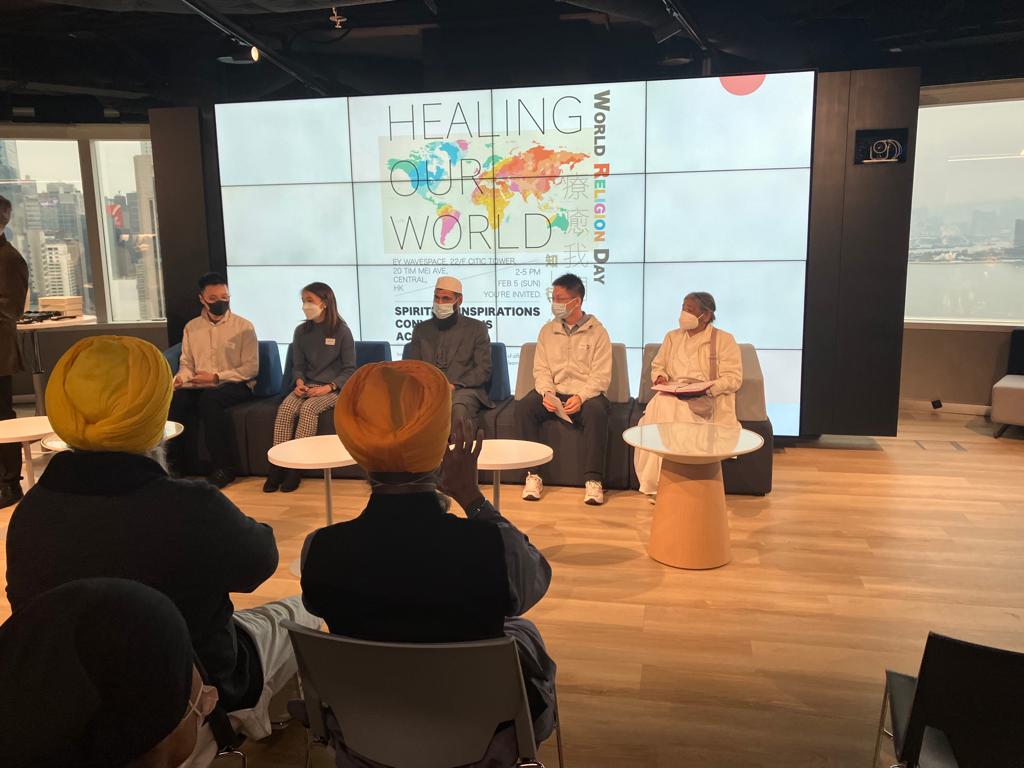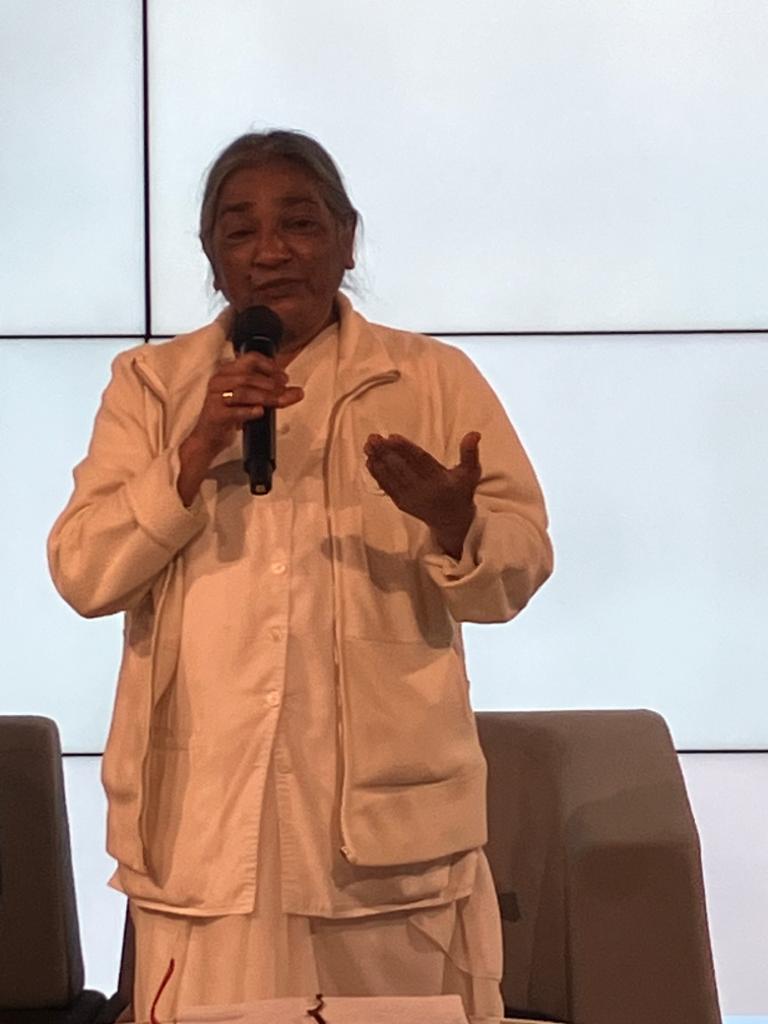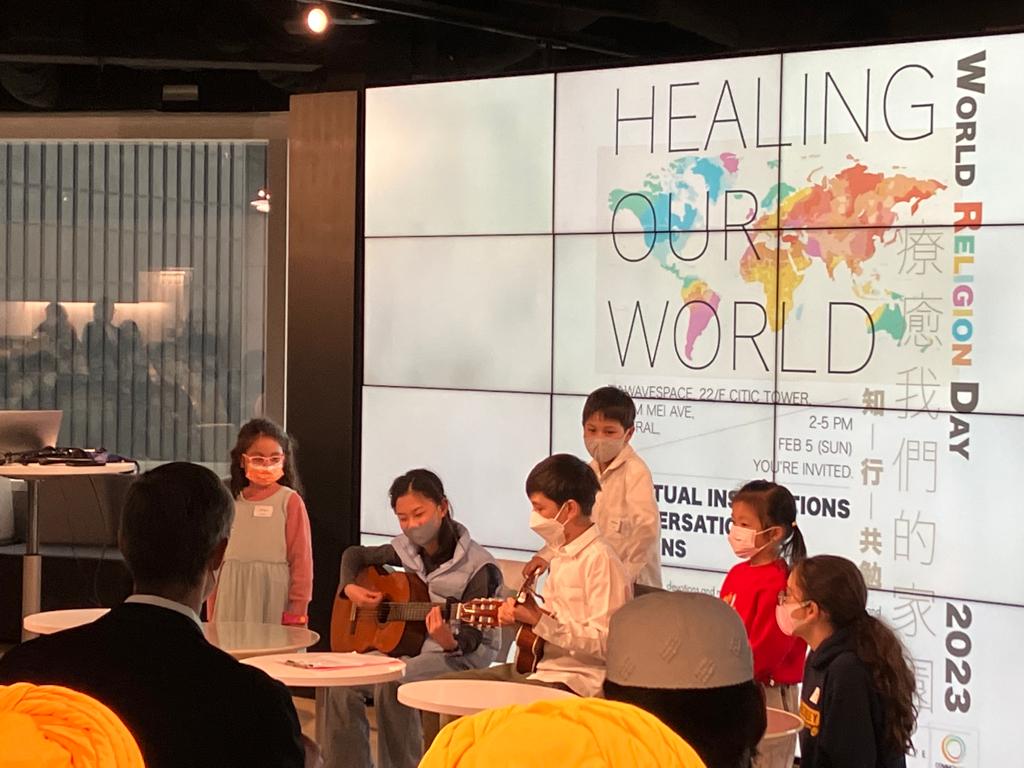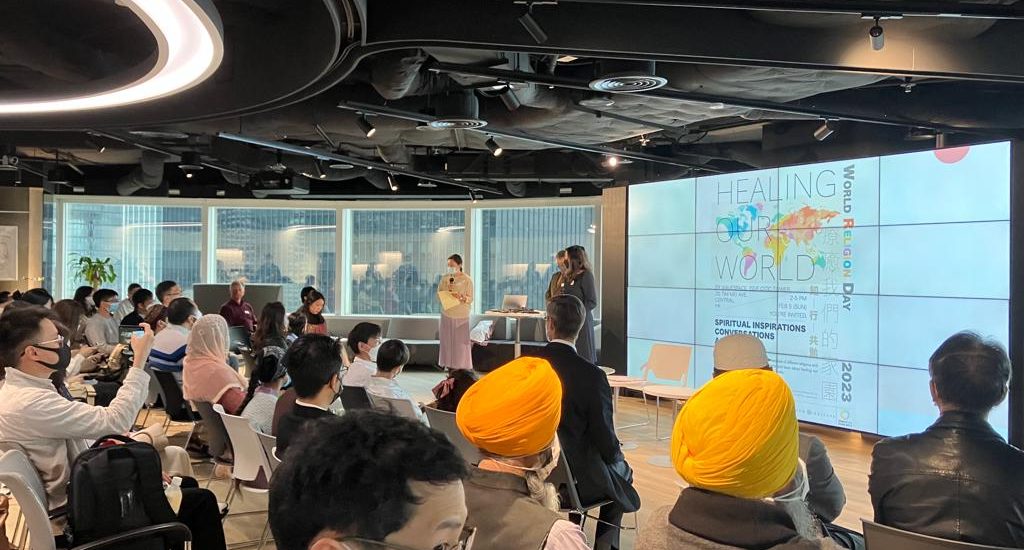Hong Kong’s tourism board has recently launched a campaign, “Hello Hong Kong,” to attract visitors and investment to the city after several years of lockdowns and inbound travel restrictions. Highlights on the official account’s Facebook and Instagram include attractions like Disneyland, Ocean Park, and the Peak Tram, along with the new cultural hubs of the Palace Museum and M+.
While the 500,000-head flight ticket giveaway and campaign by business leaders to encourage people back are nice to see, it is easy to forget that Hong Kong boasts one of the most diverse spectrum of religions in the world (certainly in East Asia). The Bahai community is one of these core communities in Hong Kong, and each year they organize a highly significant and successful World Religion Day, bringing together members of different faith traditions for a day of sharing, deliberation, and mutual encouragement.
This year’s theme was “Healing Our World,” a mission that has grown ever more important amidst the pandemic, geopolitical instability and division, and environmental crises. It was held in the heart of the Central business district and featured sessions of dialogue, prayers, devotions, performances, and small group discussions.

It was a delight for one of BDG’s contributors, Johan Nilsson, to attend this event on 5 February. This year’s World Religion Day featured “small group discussions” as a core activity, where participants were able share perspectives from their own religious traditions and, in the interaction, take away interfaith spiritual nourishment.

Johan was invited by our kind hosts to be co-facilitator of a breakout group. Buddhists leading more interfaith discussions (and maintaining friendships and alliances with non-Buddhist religions) is critical to the intellectual vitality and health of an increasingly fractured world. This is not a world split between Buddhism and others, but rather, a Buddhist world that is divided, disunited, and confused about its place in the world and future directions, from declining interest and conversion rates to a philosophical stagnancy and moribundness that has not seen it move beyond debates about McMindfulness and social justice in the West. But the situation is not much better in Asia, since the dichotomy of tradition versus modernity still has not quite been transcended, with Buddhist debates entangled among the wire or rope between these two ends. A new theology of religions in a world that has been irrevocably shattered by digital dominance will not only bring together the great faiths, but inject desperately needed vigor into our individual traditions’ philosophical relevance.

Then there is the Hong Kong story. While Hong Kong is no longer branding itself as Asia’s World City, its positioning itself as a vibrant business and cultural hub will be enriched immeasurably by highlighting the diversity and depth of the things that matter most to people, beyond shopping and spending: the things of spirituality, of meaning, hope, and human goodness.
Related features from BDG
Dharma: The Taiwanese Buddhist Death Metal Band
Mahabhikksu Ashin Jinnarakkhita: The Father of Modern Indonesian Buddhism
Rediscovering an Ancient Heritage in Indonesia


